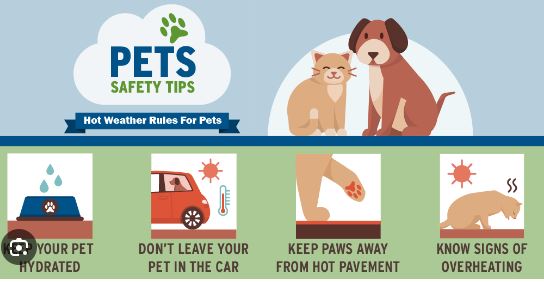Pet safety and emergency preparedness are important aspects of responsible pet ownership. Here are some tips to help keep your pets safe in different situations:
1. Identification: Make sure your pet has proper identification, including a collar with ID tags and a microchip with up-to-date contact information. This will increase the chances of finding your pet if they get lost.
2. Emergency Kit: Prepare an emergency kit for your pet that includes food, water, medication, a leash, a carrier, and any other necessary supplies. Keep this kit easily accessible in case you need to evacuate quickly.
3. Evacuation Plan: Have a plan in place for evacuating with your pets in case of an emergency. Know where you can go and which pet-friendly shelters or hotels are available in your area. Practice evacuating with your pets to make the process easier and less stressful.
4. Safe Space: Create a safe space for your pet in your home. This can be a designated area where your pet can retreat to during emergencies or stressful situations. Make sure this space is easily accessible and stocked with their essentials.
5. Pet First Aid: Learn basic pet first aid techniques, such as how to perform CPR and address common injuries. Having this knowledge can help you provide immediate care to your pet in an emergency situation.
6. Fire Safety: Install smoke detectors in your home and ensure they are working properly. Keep pets away from open flames, such as candles or stovetops, and consider using flameless candles instead.
7. Heat and Cold Protection: During extreme weather conditions, take measures to protect your pet from heatstroke or hypothermia. Provide plenty of fresh water and shade during hot weather, and keep your pet warm with blankets or sweaters during cold weather.
8. Poison Control: Be aware of common household items that could be toxic to your pets. Keep medications, cleaning products, and chemicals securely stored out of your pet’s reach. Have the number for a pet poison control hotline readily available.
9. Regular Veterinary Care: Schedule regular check-ups with your veterinarian to keep your pet healthy and up-to-date on vaccinations. In case of an emergency, have your veterinarian’s contact information easily accessible.
10. Socialization and Training: Properly socialize and train your pet to ensure they can handle different situations calmly. This can help reduce stress and anxiety during emergencies.
Remember, pets are part of the family, and their safety should be a priority. By being prepared and taking necessary precautions, you can help ensure your pet’s well-being in any situation.
